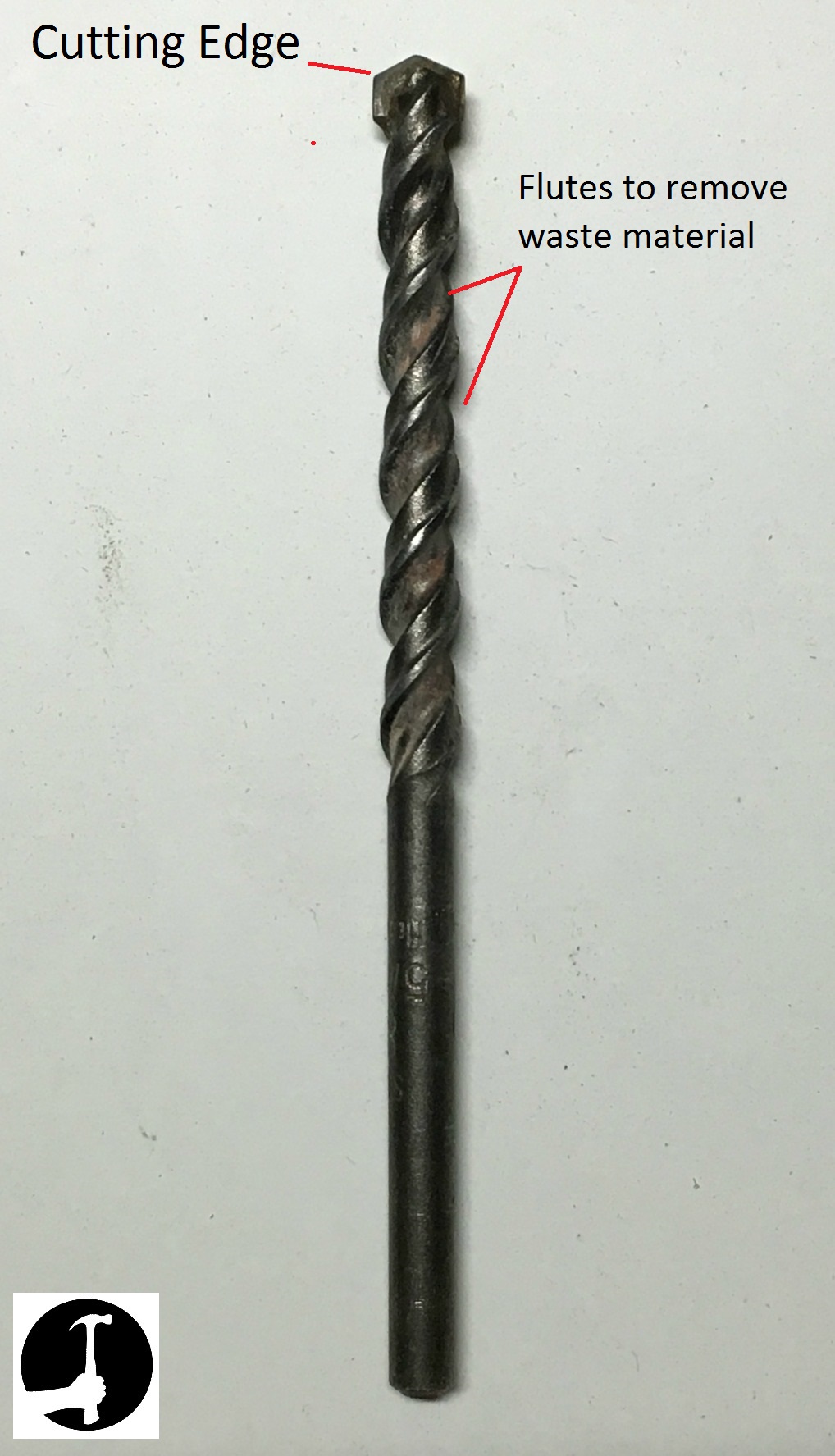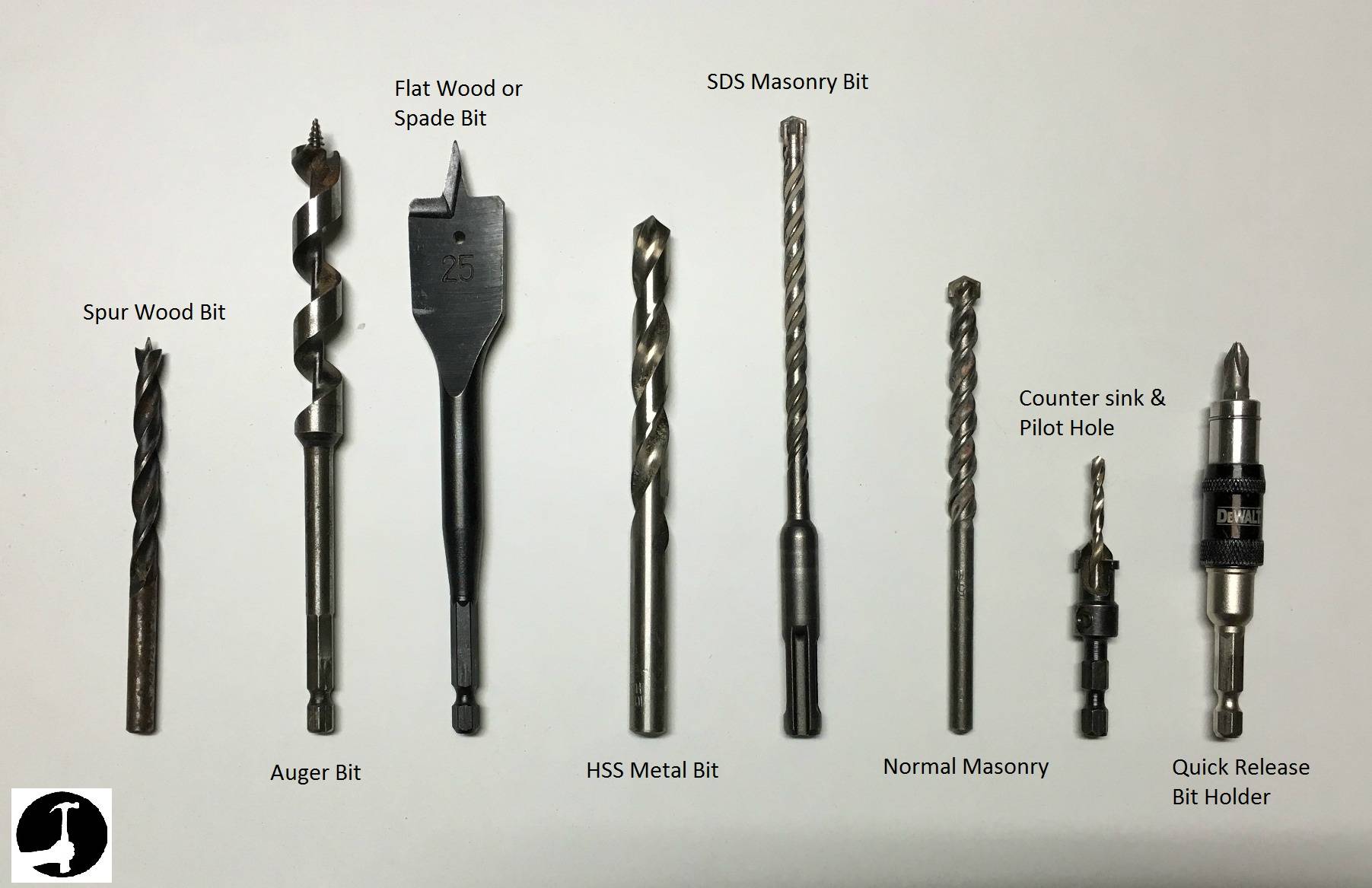Can you use wood drill bits on brick? If you’ve ever wondered about this, you’re in the right place! We’ve got the answers you need to know. Whether you’re a curious DIY enthusiast or just someone looking for some handy knowledge, we’ve got you covered.
Now, imagine you have a woodworking project and you need to drill holes in both wood and brick surfaces. Is it possible to use wood drill bits on brick? Well, let’s dive into the details and find out the truth behind this common question.
Before you start drilling away, it’s important to understand the key differences between wood and brick. Understanding these differences will help you make an informed decision about whether wood drill bits can handle the tough job of drilling into brick. So let’s get ready to uncover the truth and discover the best approach for your project.

Can You Use Wood Drill Bits on Brick? Exploring the Compatibility
Brick is a commonly used material in construction, known for its durability and strength. When it comes to drilling into brick, you might wonder if you can use wood drill bits for the task. After all, wood drill bits are readily available and can be found in most households. In this article, we will delve into the compatibility of wood drill bits on brick, discussing the limitations, potential risks, and alternative options for achieving the desired results.
The Compatibility of Wood Drill Bits on Brick
Wood drill bits are specifically designed to penetrate wood surfaces with ease. They have a sharp, pointed tip and flutes along the shaft that help remove the material as you drill. However, when it comes to drilling into brick, wood drill bits are not the ideal choice. While they may be able to create a hole in brick to some extent, they are not designed to withstand the hardness and density of the material.
Using wood drill bits on brick can result in several issues. Firstly, the tip of the wood drill bit may become damaged or blunt when drilling into brick, rendering it less effective on wood surfaces in the future. Additionally, the flutes on wood drill bits are not designed to handle the debris generated while drilling into brick, resulting in clogging, slow progress, or even the bit getting stuck inside the hole. Lastly, wood drill bits may not be able to create a clean and precise hole in brick, which can be problematic if you require accuracy in your drilling projects.
The Risks and Limitations of Using Wood Drill Bits on Brick
Using wood drill bits on brick can pose various risks and limitations. One of the main risks is the potential for the drill bit to break or snap while drilling into brick. As brick is a hard material, it exerts more pressure on the drill bit, which can lead to its failure and cause injuries or damage to surrounding surfaces. Additionally, using wood drill bits on brick can result in slower drilling progress, as they are not designed to efficiently handle the density of the material. This can prolong your drilling project and cause frustration.
Furthermore, using wood drill bits on brick may not provide the desired results in terms of hole size and precision. Brick requires specific tools, such as masonry drill bits, to create accurate and clean holes. Trying to achieve the same level of precision with wood drill bits can be challenging and may lead to unsatisfactory outcomes. To ensure safety, efficiency, and successful drilling on brick surfaces, it is recommended to use the appropriate tools specifically designed for masonry work.
Alternatives for Drilling into Brick
When it comes to drilling into brick, there are several alternatives to using wood drill bits. The most suitable option is to use masonry drill bits, which are specially designed for working with materials like brick, concrete, and stone. These drill bits have a carbide tip that is capable of cutting through hard surfaces without getting damaged. They also have flutes specifically designed to handle the debris generated while drilling into brick, ensuring smooth progress and preventing clogging.
Another alternative is to use hammer drill bits, which are designed for masonry drilling and feature a special tip that allows for impact drilling. This means that the drill bit not only rotates but also hammers into the material, making it easier and faster to penetrate brick surfaces. Hammer drill bits are typically used with a hammer drill, which provides the necessary force for efficient drilling into brick.
In addition to using the appropriate drill bits, it is essential to choose the correct drill for the task. For drilling into brick, a hammer drill or rotary hammer drill is recommended, as they are specifically designed for masonry work and provide the necessary power and impact needed to penetrate the material effectively.
To sum up, while it may be tempting to use wood drill bits on brick due to their availability, it is not the recommended approach. Wood drill bits are not designed to handle the hardness and density of brick, and using them can lead to various limitations, risks, and unsatisfactory results. Instead, invest in masonry drill bits or hammer drill bits specifically designed for working with brick and use the appropriate drill to ensure safe, efficient, and successful drilling on brick surfaces.
Key Takeaways: Can You Use Wood Drill Bits on Brick?
When working with brick, it is not recommended to use wood drill bits. Here are some key reasons why:
- Wood drill bits are not designed to withstand the hardness of brick.
- Using wood drill bits on brick can risk damaging the bits or the brick.
- There are specialized masonry drill bits that are designed for drilling into brick.
- Masonry drill bits have a different shape and tip that is better suited for brick drilling.
- Using the correct drill bits for the material you are working with ensures better results and longer tool life.
Frequently Asked Questions
When it comes to drilling into brick, there are specific tools designed for the job. Using wood drill bits on brick can be risky and inefficient. Here are some commonly asked questions about using wood drill bits on brick and their answers.
Can wood drill bits be used on brick?
No, wood drill bits should not be used on brick. Wood drill bits are designed specifically for drilling through wood and are not equipped to handle the hardness and density of brick. Attempting to use wood drill bits on brick can damage the drill bit, result in poor drilling performance, and potentially lead to accidents.
Instead, it is recommended to use masonry drill bits or carbide-tipped drill bits, which are designed to effortlessly penetrate materials like brick. These specialized drill bits have a carbide or diamond tip that can withstand the tough nature of brick and provide clean and efficient drilling.
What are the risks of using wood drill bits on brick?
Using wood drill bits on brick can pose several risks. First, the wood drill bit may become damaged or dulled due to the high density and hardness of brick. This can lead to a reduced drilling performance and ultimately render the drill bit useless for future drilling tasks.
Furthermore, using wood drill bits on brick can cause excessive heat and friction, which can lead to the drill bit overheating and potentially causing injury or damaging the drill itself. Additionally, the drilling process may be inefficient and time-consuming, as wood drill bits are not designed to effectively cut through brick.
What type of drill bit should be used for drilling into brick?
For drilling into brick, it is recommended to use either masonry drill bits or carbide-tipped drill bits. These types of drill bits are specifically designed to handle the hardness and density of brick. Masonry drill bits have a specially hardened tip that can effectively penetrate masonry materials like brick.
Carbide-tipped drill bits, on the other hand, have a carbide or diamond tip that is highly resistant to wear and can provide even faster and more efficient drilling into brick. Both types of drill bits are readily available in hardware stores and online, making them easily accessible for any drilling needs in brick.
What are the advantages of using the correct drill bit for brick?
Using the correct drill bit for brick, such as masonry or carbide-tipped drill bits, offers several advantages. First, these drill bits are specifically designed to handle the hardness and density of brick, resulting in faster and more efficient drilling.
Furthermore, using the correct drill bit reduces the risk of damage to both the drill bit and the drilling equipment. This ensures a longer lifespan for the drill bits and a more reliable and safe drilling process. Overall, using the correct drill bit for brick leads to better drilling performance, increased durability of the tools, and a smoother drilling experience.
Can wood drill bits be used on softer materials besides wood?
While wood drill bits are primarily designed for drilling through wood, they can also be used on softer materials such as plastic or drywall. These materials are less dense and not as challenging for wood drill bits to drill through.
However, when drilling into materials other than wood, it is still important to consider the specific properties of the material and whether a more suitable drill bit is available. Using the correct drill bit for the material will ensure better results, avoid potential damage to the drill bit, and provide a safer and more efficient drilling experience.

Summary
Using wood drill bits on brick is not recommended because they are not designed for the task. Wood drill bits may get dull quickly, break, or damage the brick. It is important to use the right drill bits for the material you are working with to ensure safety and achieve the best results.
Using the correct drill bits, such as masonry drill bits, will make drilling into brick easier and more efficient. Masonry drill bits have a carbide tip that is specifically designed to penetrate hard materials like brick. By using the appropriate drill bits for the job, you can avoid potential problems and ensure a successful outcome in your drilling projects.
